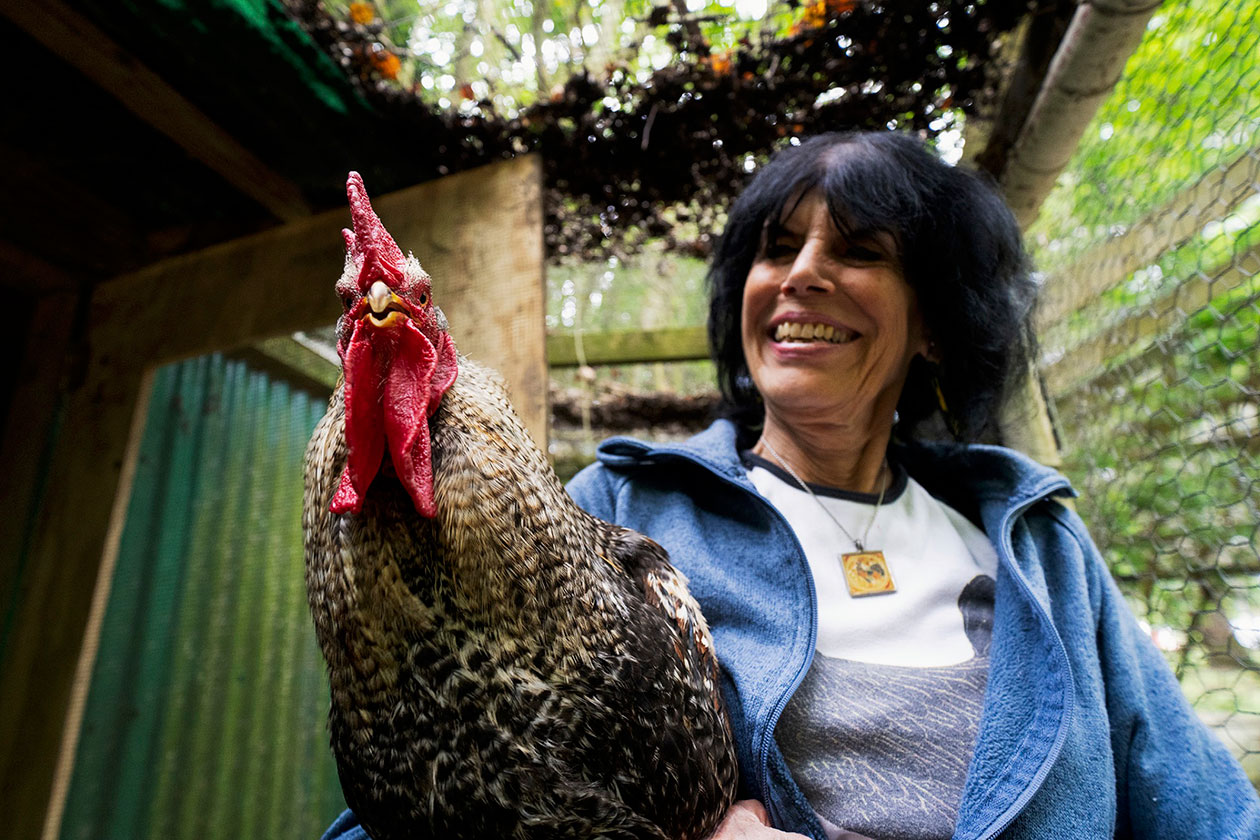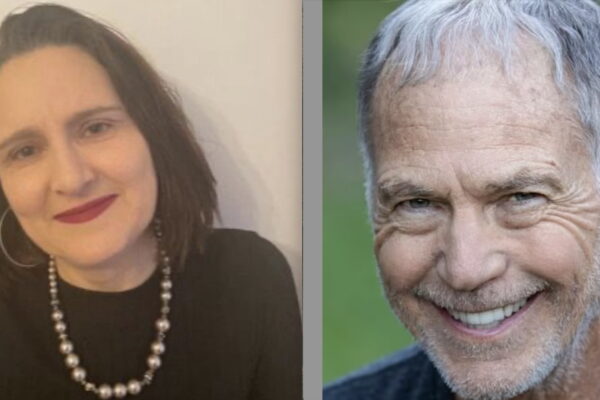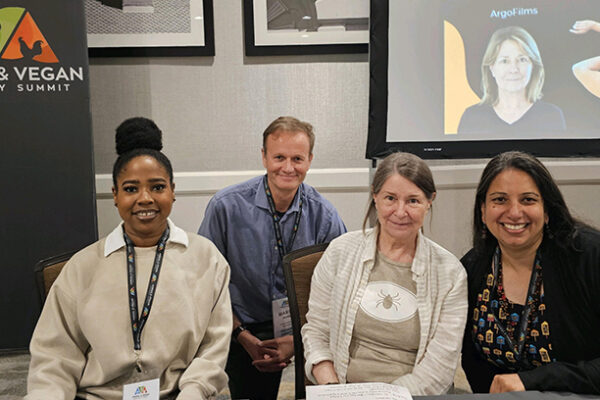CAF’s Executive Director Martin Rowe remembers Karen Davis, the founder of United Poultry Concerns, who died on November 4, 2023. (You can also read her obituary in the New York Times.)
Many years ago, the Economist magazine ran a piece on one of Karen Davis’ books. At the time, I was publishing Karen’s work at Lantern Books, and while I wasn’t responsible for Prisoned Chickens, Poisoned Eggs: An Inside Look at the Modern Poultry Industry (1996), I did bring out More than a Meal: The Turkey in History, Myth, Ritual, and Reality (2001), The Holocaust and the Henmaid’s Tale: A Case for Comparing Atrocities (2005), and, much later, For the Birds: From Exploitation to Liberation (2019).
Lantern, which published many books on veganism and animal rights (and still does, as Lantern Publishing & Media), didn’t get much notice from the mainstream media, so an article in the Economist was a big deal. As it turned out, the magazine had decided to devote its precious real estate to a takedown of Karen’s book (I can’t remember which one). The tone (I’m sure you’re familiar with it) combined arch condescension with the sort of winking self-satisfaction that bien pensants share with one another when they encounter an idea or person who is obviously beyond the realms of reasonable or serious critical consideration. Karen’s work was a palate cleanser to the already stuffed readers of that august organ of truth.
To my knowledge, Karen, who died this past weekend, took the hatchet job in her stride. That was no surprise. Karen could more than handle herself when it came to withering, direct, and artfully constructed takedowns. Schooled in literature, she was a very capable writer, with a strong rhetorical style, and as the title to her third book illustrates, she was unafraid to offend or court controversy.
Those qualities animated Karen’s activism. Timidity and reticence were not what the chickens, ducks, geese, turkeys, and other domesticated birds she dedicated so many decades of her life to defending needed. Their plight demanded someone who was not afraid to speak out, and that person was Karen. Literally. When she used a microphone, she turned it into a megaphone; when she talked to you in person, it was as though she was addressing a public meeting. She was filled with righteous fervor. Even if you were well-versed in the matter, you had to understand just what these billions of forgotten and/or belittled individual souls were experiencing.
Karen may have been abrasive and impolitic; her singular focus may have at times been unstrategic or alienating. But in mourning her passing, I’m filled with gratitude for having known her, and for her having been in the movement.
The Economist’s supposed humor depended not just on ridiculing Karen or the argument, but on the readership assuming that even talking with passionate moral concern about domesticated birds was risible, absurd—perhaps insultingly so. Back then, and even now, those creatures the industry lumps together as “poultry” are the most abused of the animals we farm on the land, and they constitute more than 90 percent of that number. Almost all of them are raised in confinement, mutilated, and denied their natural behaviors. All of these are killed prematurely, and millions of male chicks (who are of no use to the egg-laying industry) are ground up alive almost as soon as they’ve left the shell.
“Chicken” is the meat that environmentalists eat because they’re worried about greenhouse gas emissions, and no longer consume (as much) beef or lamb. “Chicken” is the protein source that conscientious carnivores turn to because they’ve discovered that pigs are as smart as dogs. “Chicken” is the word that describes dumbness, cowardice, ineffectuality, and every bland substitute or weird exotic substance that humans in our craven omnivory wish to sample: “It tastes like chicken.”
The animals who are genetically disfigured, plucked, skinned, eviscerated, and packaged for us needed a champion; their invisibility and individuality demanded a storyteller—and Karen Davis made her full-throated case on their behalf. I know she often despaired of slowing, let alone stopping, the production lines and conveyer belts that sent to their premature deaths so many of the creatures that she knew for their quirky personalities—capable of so many things, including affection and companionability. She’d veer between calls for outright abolition and any means of alleviating their suffering: ideological consistency for her meant little if it delayed them a modicum of comfort or inhibited action. I think she carried the burden of what she knew heavily, which was in turn a reaction to her relatively late realization about what is done to farmed animals on our behalf. There was no time to waste, and Karen made you aware of it.
All social movements go through periods of waxing and waning, and all of them struggle to reconcile the understandable wish to professionalize, grow membership, and gain the ear of the powerful and influential with the passion of their activists, who may not confine themselves to smoothly delivered PowerPoints, well-modulated presentations, or glad-handing the deep-pocketed capitalists who fund them. The animal advocacy movement is no exception, with the added dimension that too many men have claimed power and authority at the expense of the much greater number of women who constitute the movement’s foot soldiers. I’ve no idea who wrote the Economist piece (its articles are unattributed), but it smacked of entitled masculinism. Karen had to deal with that, too, both within and outside the animal movement.
I honor Karen Davis for her dedication to a group of animals that, even within the animal liberation movement, were largely ignored or considered too vast a “problem” to be addressed, until she became their vocal supporter. I will miss the kind of person she was: singular, unwilling to be silenced, unapologetic. In a world where the power centers of capital, industry, politics, and technology aren’t held to account for the havoc they’re wreaking on our planet, we need more people like Karen Davis to shout j’accuse (even at the risk of ridicule or humiliation) to stop the smooth conveyor belt we’ve created and are standing on from taking us over the edge.





